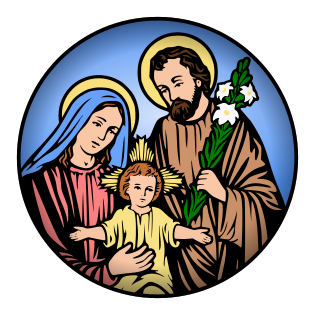The term ‘happy’ is defined as the showing of contentment or pleasure. It is often used in the context of mental or emotional states, including positive or pleasant emotions ranging from contentment to intense joy. It is also used in the context of life satisfaction, subjective well-being, and flourishing. And isn’t true that every single person on earth desires to be happy, to feel contentment and joy … There is built within the heart of every man, woman and child a real desire for happiness. As Aristotle puts it – it is natural, it arises from within us. For Aristotle, happiness depends on the use of our reason, an activity of the soul – it is the good life that is free from adversity, oppression, and danger … The question is how do we find it? Where does it come from? Can happiness be given; can I receive it from outside myself? Don’t we all want to live happily in our country, community, globally? The answer of course is a resounding yes … but again, where does it come from? Is it the responsibility of government to give us that happiness OR am I responsible for achieving it myself? Herein lies the distinction between man and government … the end purpose of government is to allow its citizens to pursue happiness, to protect it from impediments but therein lies a responsibility of our own accord to pursue the end for which we were created … For Aristotle that pursuit is called virtue. As such pursuit of virtue is the key to happiness – it is the pursuit of that which is good, truly good … and it lies to us to embark on that endeavor … and then the real question – where does it lead …
Interestingly enough in the Greek version of today’s Gospel, the word used in the famous Sermon on the Mount is ‘happy’ but the Latin translation is ‘Beati’ … blessed. And that is the term we use here … Beati, blessed, meaning to be made holy or consecrated … Jesus seems to dive deeper into our natural desire … He seems to say: yes, happiness is to be pursued but there’s more …What does the term ‘blessed’ mean? More than just a feeling, since ‘happy’ can be defined as a subjective experience. The state of being ‘blessed’ reaches beyond into the depths of one’s soul. It is a favorable standing of grace – which is simply the free gift of His divine life in us … The blessed are those whose sins are forgiven, who have faith in God, and receive His divine life – who love and obey Him, His commands, His covenant, etc … these are the ones who receive the heavenly promises of eternal life in heaven. As such… the pursuit of virtue, chasing after that which is Good ultimately leads to God … and in Him do we find true happiness, true joy for in Him we discover our true selves and the purpose of our lives … to be holy.
On this solemnity of All Saints, we are reminded that those who have gone before, who have received the promise of their eternal salvation – the saints both known and unknown – that they lived their lives for this end… they lived amid different forms of government, in various states in life – rich and poor, priests, nuns, doctors, lawyers, teachers, and so on … They lived the truest meaning of happiness or beatitude that can be found only in God and in His promises … the pursuit of happiness therefore is more than just a pursuit of virtue, it is a calling by God to holiness, to be made holy … it is something that can only be given by God… it is more than emotions and feelings … happiness, a state of blessedness is rooted and grounded in God. For if we truly desire this happiness, then we are the ones responsible for the pursuit of God in our lives, we are the ones who must pursue virtue and the end for which we were created … by God and for Him. Our lives must reflect this reality. For the saints are our heroes on this journey because they prove to us that holiness, happiness, beatitude is entirely possible.
